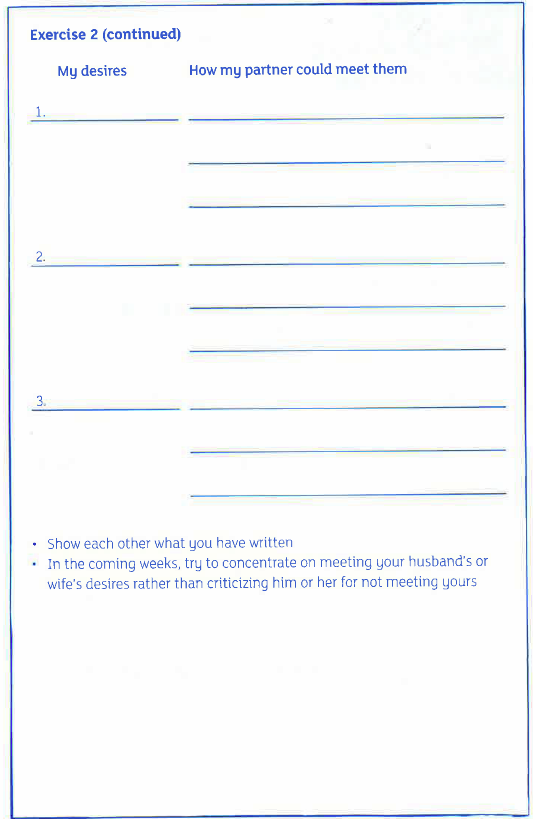Marriage Course - September 16, 2012
Day 30 - The Healing Process
More From "Marriage"
Powered by Series Engine

Nurturing involves seeking to meet each other’s emotional needs for affection, encouragement, support, comfort, etc,
- we all have a longing to be loved and to be known by another
- empty space inside that needs to be filled up with love
- when empty, we feel alone or lonely giving each other emotional support refills the empty space inside
- we are made for close relationships
How to nurture
Be proactive rather than reactive:
- being reactive means focusing on each others shortcomings
- being proactive means focusing on each other’s needs
- proactive behavior draws couples together because each one feels loved; when we feel loved, we feel like loving
Study each other:
- recognize each other’s needs
- often our partner’s needs and desires will be different to our own
- discover what matters to your husband or wife. otherwise we tend to give what we like to receive.
- needs change over time
- make requests, not demands
- we can’t assume our husband or wife automatically knows our desires. We must tell each other.

Complete the Worksheets Below:







